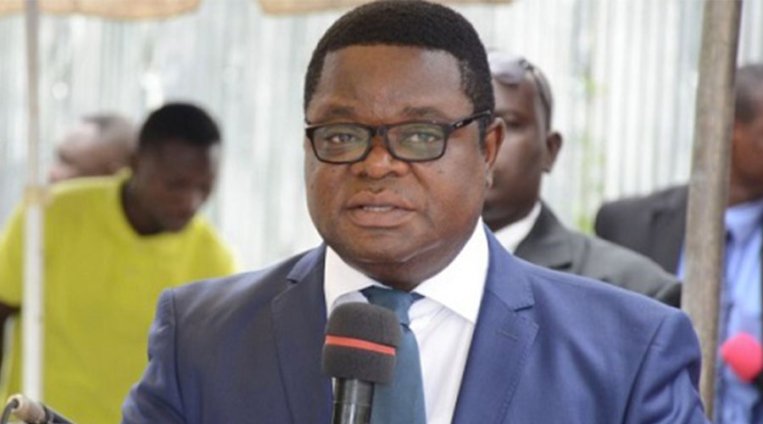Economist and Director of the Institute of Statistical, Social and Economic Research, Professor Peter Quartey, has urged government to return to complying with fiscal rules, as part of measures to revive the ailing economy.
President Akufo-Addo, in 2019, assented to the Fiscal Responsibility Act, fulfilling the government’s longstanding promise to legislate rules, limiting future public spending to at least 5% of Gross Domestic Product (GDP).
The President also established a fiscal council to oversee the implementation of the law.
But in 2020, government suspended compliance with the rules to the year 2024, due to the outbreak of Covid-19 which was having a devastating impact on the economy.
But speaking on the topic, “Fiscal Options for Stabilizing and Boosting Ghanaian Economy,”, Professor Quartey suggested that there was the need for government to reverse the suspension, so as to complement efforts in addressing the current economic challenges bedeviling the country.
“I think when we wean ourselves off from these current challenges, we should revisit this fiscal deficit target of 5% of GDP to ensure that we spend within our limit”, he said.
“The Fiscal Responsibility Act and the 5% deficit target were helping us to minimise some of these things before it was suspended due to COVID-19”, Prof. Quartey added.
Other policy imperatives
Professor Quartey also proffered other policy imperatives needing government’s action including digitising revenue collection points.
He emphasised the need to re-introduce tolls using the E-Pass System.
“Outright removal of road tolls is not in the interest of government since it sends the wrong signal to private investors who wish to express interest in a PPP arrangement”, he added.
Prof. Quartey also touched on the relevance of expenditure rationalisation and the minimisation of wastage in the system.
With regards to the challenges in the agriculture sector, the economist recommended investing in the value chain and value addition to exports.
He called for a review of the government's flagship programmes to promote value for money projects.
He also suggested that the Ghana River Authority takes up the collection of property rates to ensure efficiency.
“In my view, the assemblies have not been very efficient in collecting those property rates”, he added.
Prof. Quartey also called on government to conduct a research into weaning the universities off the public purse in order to prevent any backlash.
“We are receiving low revenues to run the universities and that has become a major challenge because universities would want to charge market rates and be able to have enough to pay lecturers, invest in infrastructure, etc.”, he argued.
Latest Stories
-
Shippers’ Authority blocks arbitrary fee hikes with new regulatory powers
2 hours -
Cedi to remain broadly stable in coming months; gained 30% against dollar since January 1
3 hours -
Mahama declares galamsey a national emergency, orders arrest of rogue taskforces
3 hours -
Ghana champions youth skills with national dialogue and launch of TVET Week 2025
3 hours -
Ghana’s inflation to remain on a downward trajectory in second-half 2025 – Fitch Solutions
3 hours -
‘Deal with galamsey, the situation is urgent’ – National House of Chiefs president to Mahama
3 hours -
AG directs EOCO to investigate NDC executives cited in galamsey allegations
4 hours -
Mahama pledges 70% world market cocoa price to farmers
5 hours -
EOCO teams up with Nigerian agency to rescue trafficking victims
5 hours -
State funeral to be held for Joseph Kobina Ade Coker on August 1
5 hours -
Mahama orders arrest of fake anti-galamsey taskforce extorting miners
6 hours -
Joseph Kobina Ade Shino Coker
6 hours -
Royal Sweet Limited signs up for JoySports Invitational Tournament 2025
6 hours -
Ghanaian movie industry wasting talent – Gloria Sarfo
6 hours -
Ho West MP secures 100 international scholarships for constituents
7 hours

